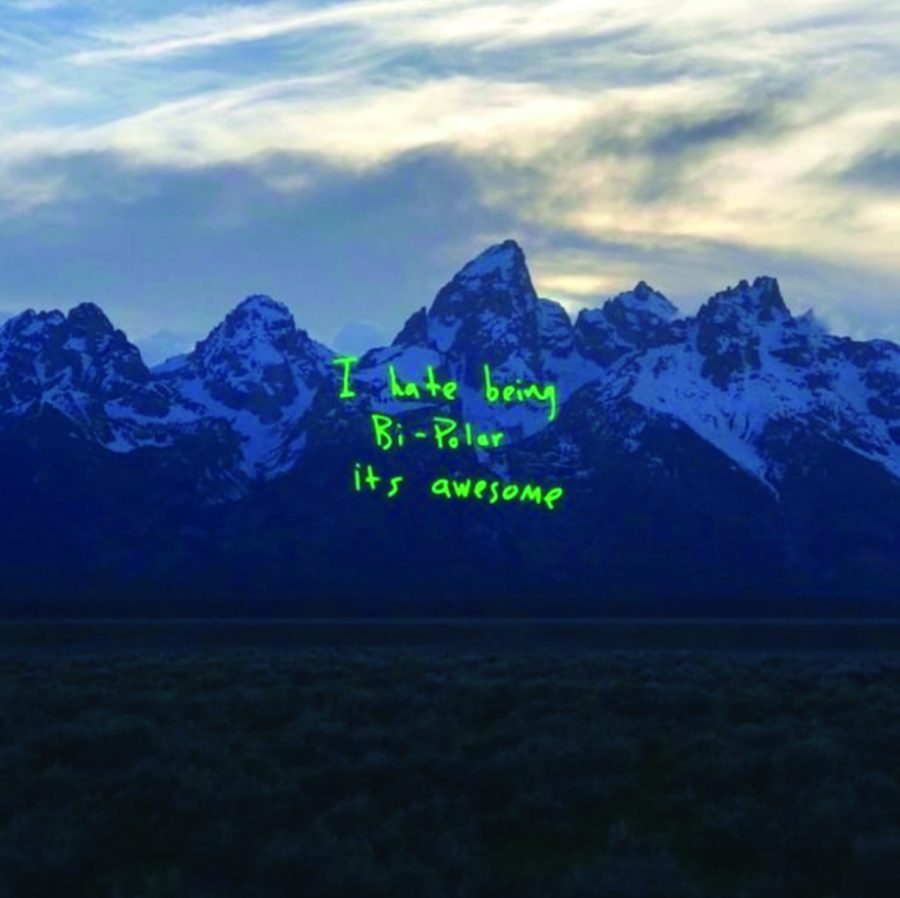The year of Kan-ye
Photo Vibe.com
In his new album, the classic Kanye returns.
It hasn’t been easy being a Kanye fan lately.
Tweets to the president, “Make America Great Again” hat selfies and the infamous “slavery was a choice” statement have made Kanye West seem more like a political commentator than artist, and fans “miss the old Kanye.”
However, West’s appetite for controversy falls short on his latest album, ye, which surprises listeners with its apolitical stance, in what reveals itself to be an intimate album addressing West’s personal life.
Clocking in at only 23 minutes and 7 tracks long, ye is West’s shortest album to date. Despite its brevity, the LP is filled with signature West production and dark lyrics reminiscent of his previous works. West brings listeners on an introspective journey through his struggles, complete with his unique flair.
West sets the mood for the album in the opening track, “I Thought About Killing You,” which starts with a spoken-word segment of West admitting to thoughts of violence and suicide. In a daring but imaginative move, he talks about topics other artists wouldn’t dare touch, even toying with the philosophical, suggesting that “the most beautiful thoughts are besides the darkest.”
West alludes to political hot topics North Korea and #MeToo in “Yikes,” but fails to form a strong opinion on the matters. However, West’s larger message on his recent opioid addiction and bipolar diagnosis, complemented with an eerie but catchy beat, makes for a memorable moment on the album, as the rapper opens up on his troubling thoughts. Listeners go down the rabbit hole of West’s mind, as he rejects his bipolar diagnosis as a disability, but rather as his newfound “superpower” considering it something to celebrate.
Death and West’s self-loathing attitude are the central ideas of “Ghost Town,” the pinnacle of ye. West solidifies his position as one of the best producers in hip-hop, with guitar riffs, a booming hook from Kid Cudi and a soul sample from Shirley Ann Lee. With sharply contrasting and depressing lyrics, the music feels like a heartfelt victory lap for the artist, and all the more enjoyable for listeners.
Despite the violent thoughts and drug addictions, West proves that he is a family man above all else on the album’s final track, “Violent Crimes.” Throughout this calming and almost serene song, the rapper acknowledges the errors of his past: “Cause now I see women as somethin’ to nurture not something to conquer.” This line references not only his wife, Kim Kardashian, but also his two daughters.
West curbs the womanizing culture of hip-hop he once took part in, taking on the responsibilities and worries of parenting. Putting his ego aside, West exposes his most humanizing trait: the hope and care he has for his daughters. Ending on a note of sincerity, he suggests that there is another phase of Kanye yet to come.

